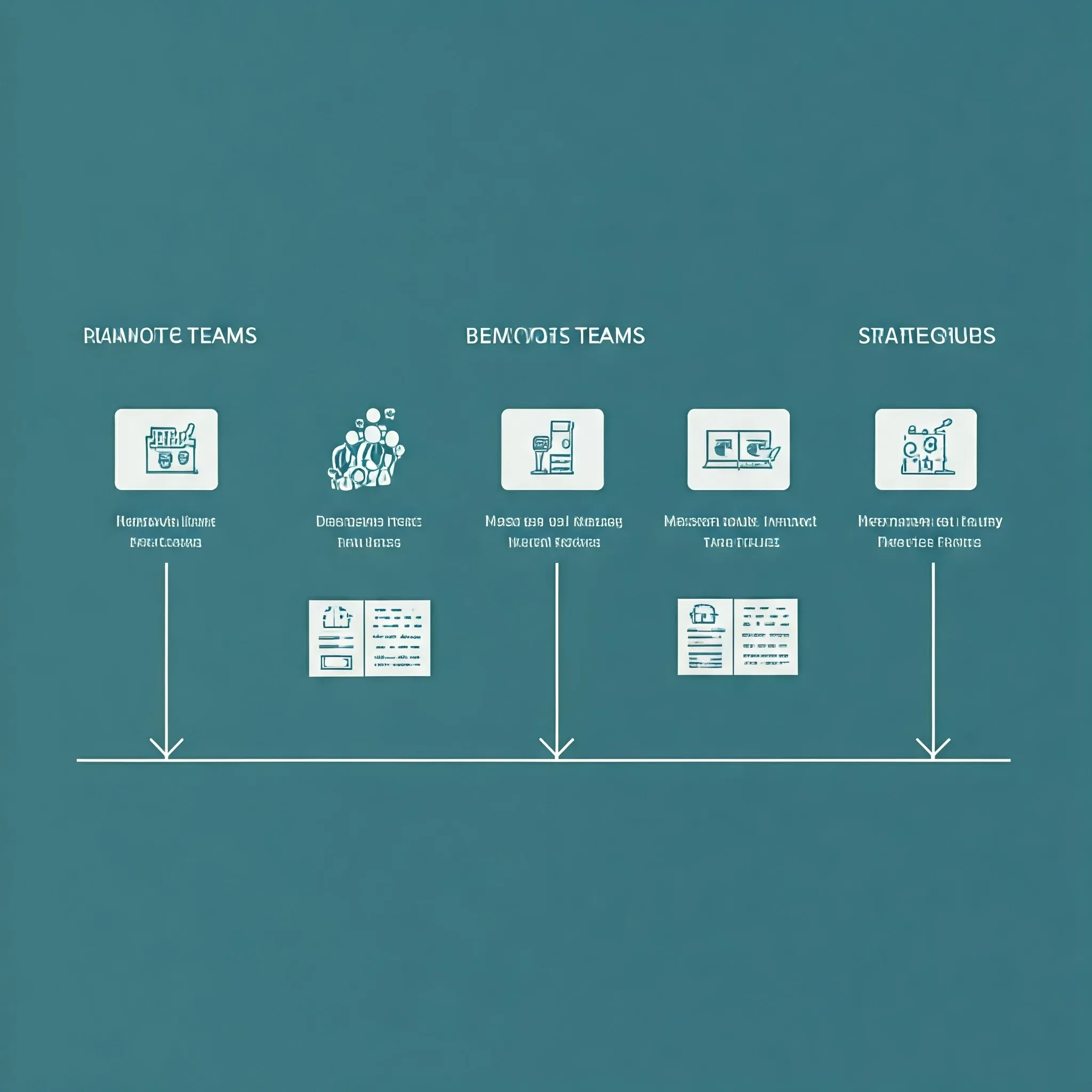
Top 5 Strategies for Managing Remote Teams
The rise of remote work has transformed the way teams collaborate, communicate, and function. It's not all smooth sailing, though. As a manager, the challenge of keeping a remote team motivated, focused, and productive can feel daunting at times. But fear not—there are strategies that, when employed correctly, can turn remote work into a smooth, efficient, and even enjoyable experience. Here are five strategies that will help you manage your remote team effectively:
1. Prioritize Clear and Transparent Communication
Clear communication is paramount, but it’s not just about sending emails or holding meetings. No, it’s about creating an environment where expectations are crystal clear, where questions are always welcomed, and where feedback flows freely. But here’s the thing: it’s easy to overlook. In a remote setting, communication tends to take on a different shape—emails, Slack messages, Zoom calls—and yet the essence remains the same. Without it, you're setting your team up for frustration and confusion. Set the tone for open dialogue early on. Encourage your team to ask questions, share updates, and speak up. Consistent communication keeps everyone on the same page. Don’t underestimate its power.
2. Foster a Strong Team Culture
You might think that remote work equals isolated work, right? Well, not if you do it right. Building and maintaining a strong team culture is crucial. How do you do this when you're not in the same room? It starts with intentionality. Weekly check-ins, virtual happy hours, team-building activities, and even casual chats can help. The goal here is simple: make everyone feel like they belong, even when they’re miles away. A unified team, despite the distance, will always outperform a disconnected one. But it’s not always easy. You must be proactive in cultivating that sense of connection. Team members should know that they’re not just working alongside each other—they’re working with one another, building something together. That sense of belonging is the secret sauce for high-performing remote teams.
3. Leverage Technology Wisely
Technology can be your best friend or your worst enemy when managing a remote team. The wrong tools can lead to inefficiencies, frustration, and even burnout. But the right tools? They can propel your team to new heights. Project management software like Asana or Trello, time-tracking apps like Toggl, and communication platforms like Slack or Microsoft Teams—these tools are essential in keeping things running smoothly. But be cautious: don’t overwhelm your team with too many tools. It’s easy to get caught up in the tech game. Instead, choose the tools that will genuinely help your team stay organized, collaborate effectively, and manage their time well. In the end, it’s not about the number of tools, but how well you use them to enhance productivity.
4. Offer Flexibility with Accountability
Remote work is all about flexibility. You want your team to have the freedom to work when they’re most productive. But here’s the thing: flexibility without accountability is chaos waiting to happen. So how do you strike the balance? Trust your team, but also set clear expectations. Encourage autonomy, but hold them accountable for deadlines and deliverables. The best way to do this is by focusing on outcomes, not micromanaging every move. Give your team the space they need to thrive, but ensure that they understand their responsibilities and the goals they’re working towards. It’s about creating an environment where trust and responsibility go hand-in-hand.
5. Encourage Personal Development and Well-being
One of the most overlooked aspects of managing remote teams is focusing on the well-being of team members. A stressed, burned-out team is one that will struggle to meet deadlines and maintain productivity. As a manager, you have the responsibility to ensure that your team has the resources they need to thrive—not just professionally, but personally as well. Encourage breaks, promote mental health awareness, and support ongoing personal development. When team members feel valued and supported in their growth, they’re more likely to bring their best selves to the work. So, while remote work offers great flexibility, make sure to remind your team that their health and personal growth matter, too. It’s an investment that will pay off in the long run.
Managing a remote team isn’t a walk in the park. But by using these strategies—clear communication, fostering a team culture, leveraging technology, balancing flexibility with accountability, and focusing on personal well-being—you can create an environment where your remote team thrives. With the right mindset and approach, remote teams can be as effective, if not more so, than traditional office-based teams.